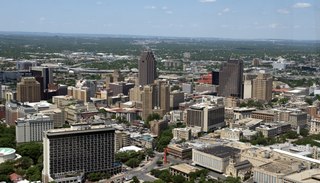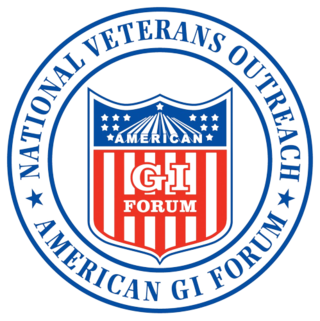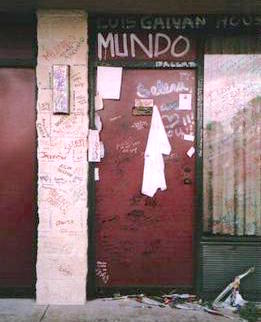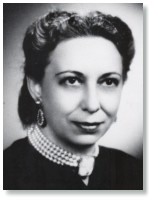Related Research Articles

Corpus Christi is a coastal city in the South Texas region of the U.S. state of Texas and the county seat and largest city of Nueces County with portions extending into Aransas, Kleberg, and San Patricio counties. It is 130 miles (210 km) southeast of San Antonio and 208 miles (335 km) southwest of Houston. Its political boundaries encompass Nueces Bay and Corpus Christi Bay. Its zoned boundaries include small land parcels or water inlets of three neighboring counties.

Tejanos are descendants of Texas Creoles and Mestizos who settled in Texas before its admission as an American state. The term is also sometimes applied to Texans of Mexican descent.

South Texas is a geographic and cultural region of the U.S. state of Texas that lies roughly south of—and includes—San Antonio. The southern and western boundary is the Rio Grande, and to the east it is the Gulf of Mexico. The population of this region is more than 5 million according to the 2024 census estimates. The southern portion of this region is often referred to as the Rio Grande Valley. The eastern portion along the Gulf of Mexico is also referred to as the Coastal Bend.

Héctor Pérez García was a Mexican-American physician, surgeon, World War II veteran, civil rights advocate, and founder of the American GI Forum (AGIF). As a result of the national prominence he earned through his work on behalf of Hispanic Americans, he was instrumental in the appointment of Vicente T. Ximenes, a Mexican American and AGIF charter member, to the Equal Employment Opportunity Commission in 1966.
The Mexican American Legal Defense and Educational Fund (MALDEF) is a national non-profit civil rights organization formed in 1968 by Jack Greenberg to protect the rights of Latinos in the United States. Founded in San Antonio, Texas, it is currently headquartered in Los Angeles, California and maintains regional offices in Sacramento, San Antonio, Chicago, and Washington, D.C.

The American GI Forum (AGIF) is a congressionally chartered Hispanic veterans and civil rights organization founded in 1948. Its motto is "Education is Our Freedom and Freedom should be Everybody's Business". AGIF operates chapters throughout the United States, with a focus on veterans' issues, education, and civil rights. Its two largest national programs are the San Antonio-based Veterans Outreach Program, and the Dallas-based Service, Employment, Redevelopment-Jobs for Progress, Inc. (SER). The current National Commander is David Rodriguez.

The League of United Latin American Citizens (LULAC) is the largest and oldest Hispanic and Latin-American civil rights organization in the United States. It was established on February 17, 1929, in Corpus Christi, Texas, largely by Hispanics returning from World War I who sought to end ethnic discrimination against Latinos in the United States. The goal of LULAC is to advance the economic condition, educational attainment, political influence, housing, health, and civil rights of Hispanic people in the United States. LULAC uses nationwide councils and group community organizations to achieve all these goals. LULAC has about 132,000 members in the United States.
Jovita González was a well-respected Mexican-American folklorist, educator, and writer, best known for writing Caballero: A Historical Novel. González was also involved in the commencement in the League of United Latin American Citizens and was the first female and the first Mexican-American to be the president of the Texas Folklore Society from 1930 to 1932. She saw a disconnect between Mexican-Americans and Anglos so in a lot of her work, she promoted Mexican culture and tried to ease the tensions between each group.

On the morning of March 31, 1995, American singer Selena Quintanilla-Pérez was shot and fatally wounded at the Days Inn in Corpus Christi, Texas. Although paramedics tried to revive Selena, she died of hypovolemic shock at Corpus Christi Memorial Hospital at age 23. The killer, Yolanda Saldívar, was the president of Selena's fan club who was exposed as having embezzled thousands of dollars from the singer's earnings.
The Order of the Sons of America was a civic organization formed by Mexican-American citizens in San Antonio, Texas on October 13, 1921. The OSA expanded to chapters in various cities throughout Texas including Somerset, Pearsall and Corpus Christi. As one of the three largest organizations of its type in the 1920s, its goal was to protect and advance the interests of Mexican-American citizens and their community, seeking to counter discrimination against them. Limiting their members to native-born US or naturalized citizens, the group was led by Spanish-speaking Mexicans of the upper class, including attorneys, teachers, and entrepreneurs.

Alicia Dickerson Montemayor was an American civil rights activist from Laredo, Texas, the first woman elected to a national office not specifically designated for a woman, having served as vice president general of the interest group, the League of United Latin American Citizens. She was the first woman to serve as associate editor of the LULAC newspaper and the first to write a charter to fund a LULAC youth group. Montemayor urged the inclusion of girls and women into Latin American activism and also promoted the interests of middle-class Mexican-Americans. She is a designated honoree of Women's History Month of the National Women's History Project.
Dorothy Hood was an American painter in the Modernist tradition. Her work is held in private collections and at several museums, most notably the Museum of Modern Art and Museum of Fine Arts, Houston. Her preferred mediums were oil paint and ink.
Aurora Estrada Orozco was a Mexican-American community leader and writer.
The Political Association of Spanish-Speaking Organizations (PASSO) was formed as an outgrowth of the success of the Viva Kennedy Clubs in the 1960 United States Presidential Election. PASSO, which comprised several Mexican-American activist groups, fought to increase Mexican-American participation in electoral politics and campaigned for candidates, generally of Mexican descent, who supported desegregated education, protection from discrimination and federal government jobs for Mexican Americans. Later, the group became involved in farm labor disputes and was ultimately disbanded.
The following is a timeline of Latino civil rights in the United States.
Manuela Solís Sager (1912-1996) was a Mexican American labor leader, union organizer and educator. She is best known for her work organizing with Mexican women in Texas during the 1930s, where 40% of the total Mexican population were employed almost exclusively in low paid, low status jobs.

Clotilde Pérez García was a Mexican-American physician, activist, author, and educator. Her archival and activist efforts centered around Hispanics, co-founding the Spanish American Genealogical Association and American GI Forum; performing the latter with her brother Héctor P. García.

Cynthia Ann Orozco is a professor of history and humanities at Eastern New Mexico University known for her work establishing the field of Chicana studies.

Alonso S. Perales was an American lawyer, diplomat, and civil rights activist based in Texas. He was a founder of the League of United Latin American Citizens (LULAC) and served as the second president, helping write its constitution. Perales also served as a diplomat in the Eisenhower administration.
References
- 1 2 3 4 "VENTO, ADELA SLOSS | The Handbook of Texas Online| Texas State Historical Association (TSHA)". tshaonline.org. Retrieved 2018-12-08.
- 1 2 3 Vento, Arnold C. (2017). Adela Sloss-Vento : writer, political activist, and civil rights pioneer. Rodríguez, Roberto Cintli, 1954-. Lanham, Maryland: Hamilton Books. p. 53. ISBN 9780761869139. OCLC 983521546.
- 1 2 3 4 Orozco, Cynthia E. (2009). No Mexicans, women, or dogs allowed : the rise of the Mexican American civil rights movement (1st ed.). Austin: University of Texas Press. p. 201. ISBN 9780292793439. OCLC 501017354.
- 1 2 Vento, Arnold C. (2017). Adela Sloss-Vento : writer, political activist, and civil rights pioneer. Rodríguez, Roberto Cintli, 1954-. Lanham, Maryland: Hamilton Books. p. 61. ISBN 9780761869139. OCLC 983521546.
- ↑ Sloss-Vento, Adela (1977). Alonso S. Perales: His Struggle for the Rights of Mexican-Americans. San Antonio, TX: Artes Graficas.
- 1 2 3 Texas A&M-University Kingsville (13 November 2017), Tejano Talks #31 - Adela Sloss-Vento - (2017) , retrieved 2018-12-11